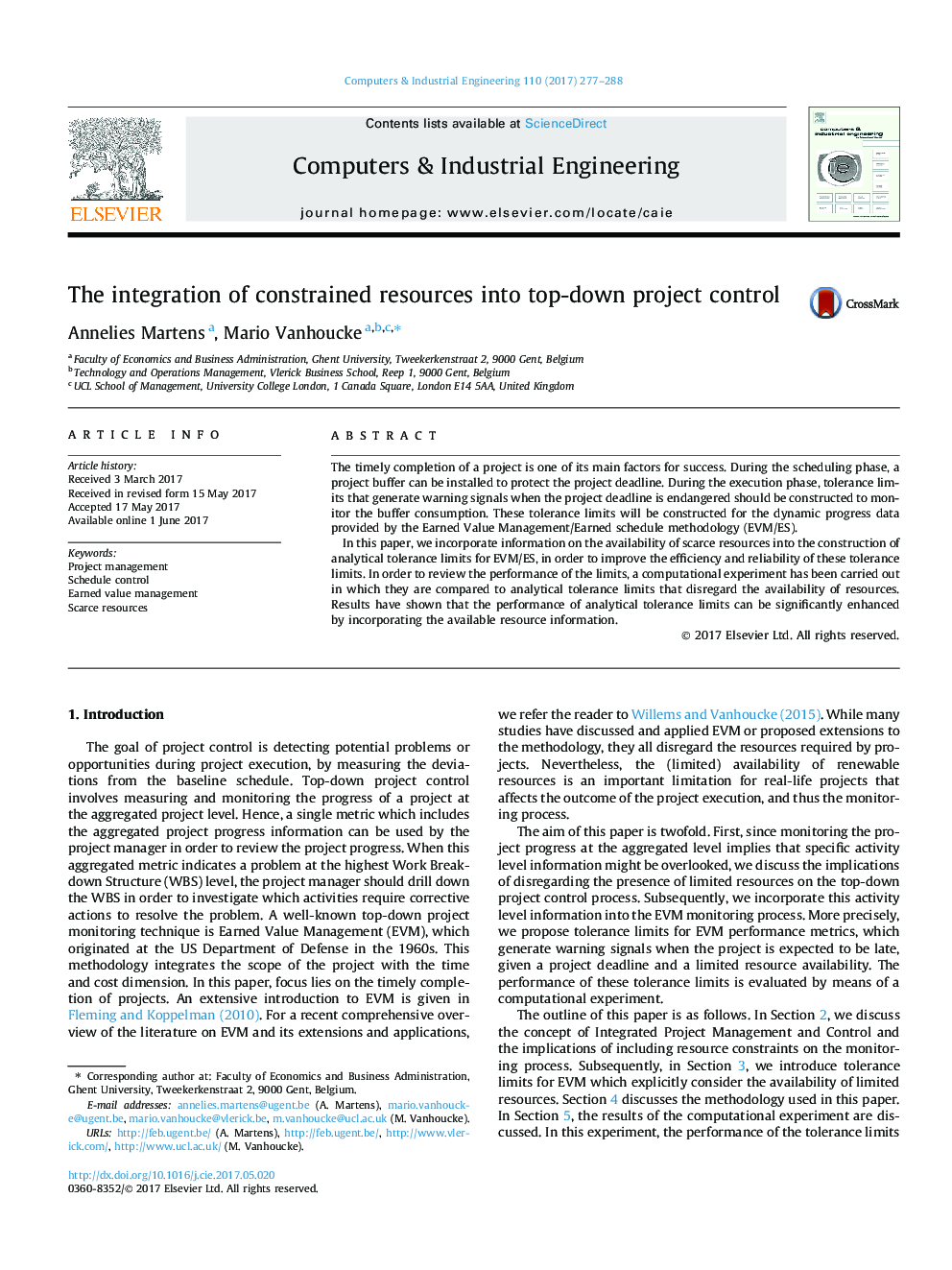| Article ID | Journal | Published Year | Pages | File Type |
|---|---|---|---|---|
| 5127494 | Computers & Industrial Engineering | 2017 | 12 Pages |
â¢Analytical tolerance limits for the project buffer consumption are set.â¢The availability of scarce resources is taken into account.â¢A computational study is used to compare the limits to existing analytical limits.â¢The impact of the execution policy, SP-indicator and RC is examined.â¢Including information on scarce resources enhances the tolerance limits' efficiency.
The timely completion of a project is one of its main factors for success. During the scheduling phase, a project buffer can be installed to protect the project deadline. During the execution phase, tolerance limits that generate warning signals when the project deadline is endangered should be constructed to monitor the buffer consumption. These tolerance limits will be constructed for the dynamic progress data provided by the Earned Value Management/Earned schedule methodology (EVM/ES).In this paper, we incorporate information on the availability of scarce resources into the construction of analytical tolerance limits for EVM/ES, in order to improve the efficiency and reliability of these tolerance limits. In order to review the performance of the limits, a computational experiment has been carried out in which they are compared to analytical tolerance limits that disregard the availability of resources. Results have shown that the performance of analytical tolerance limits can be significantly enhanced by incorporating the available resource information.
